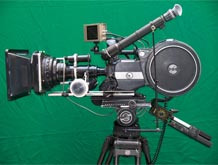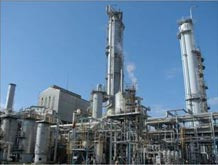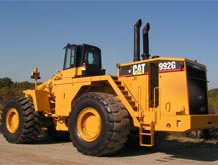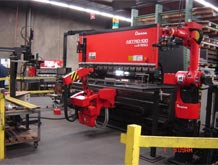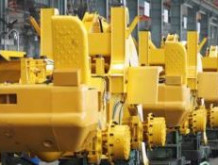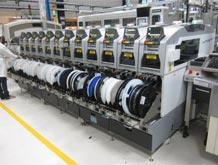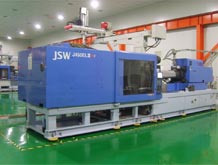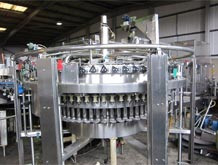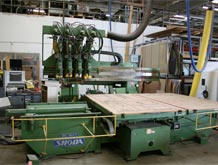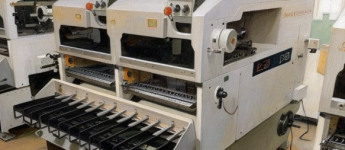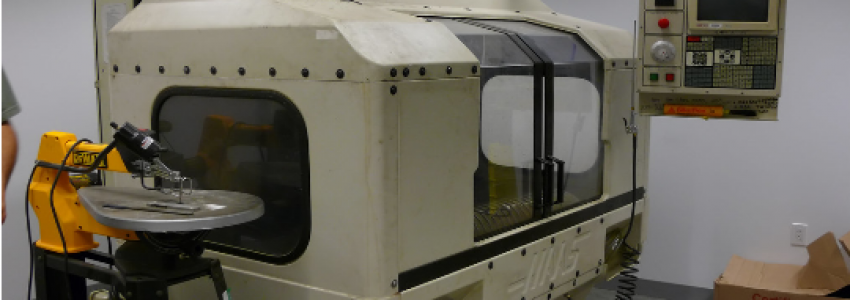
Kitmondo
07 Mar 2024
In the realm of used industrial machinery, warranties are not just add-ons; they're essential safeguards that can dramatically influence the longevity, reliability, and overall value of your investment. This extensive guide aims to demystify the warranty options available for used industrial machinery, providing you with the insights needed to make informed decisions. From understanding different types of warranties to evaluating their worth and navigating the claim process, we'll cover all you need to know to protect your machinery and your business.
What are the main types of industrial machinery
The main types of industrial machinery can be categorized based on their applications in various sectors of industry. Here's an overview of some of the most important types:
Agricultural Machinery: Equipment used in farming to aid in farming operations. Examples include tractors, plows, harrows, combine harvesters, and balers.
Construction Machinery: Heavy equipment used in construction tasks, such as earthwork operations. This category includes excavators, bulldozers, backhoes, concrete mixers, cranes, and dump trucks.
Manufacturing Machinery: Machines used in the manufacturing process to produce goods. This includes lathes, milling machines, drilling machines, punch press machines, welding machines, stamping presses, and assembly line equipment.
Mining Machinery: Equipment used for mining operations. This encompasses drilling machines, excavators, crushing and grinding equipment, blasting tools, and earth movers.
Textile Machinery: Equipment used in the fabrication of textiles and garments. This includes looms, knitting machines, sewing machines, and embroidery machines.
Printing Machinery: Machines used for printing text and images. This includes offset printers, digital printers, screen printers, and flexography machines.
Chemical Processing Machinery: Equipment used in the chemical industry to facilitate chemical reactions and processing. This can include reactors, mixers, distillation columns, and centrifuges.
Packaging Machinery: Machines that are used for packaging products before they are shipped or sold. This includes filling machines, sealing machines, wrapping machines, and labeling machines.
Oil and Gas Machinery: Equipment used in the extraction and processing of oil and gas. This includes drilling rigs, pump jacks, offshore platforms, and refining units.
What Are Warranty Options for Used Industrial Machinery?
When venturing into the market of used industrial machinery, familiarizing yourself with the warranty options can significantly influence your buying decision. Let’s explore the common types of warranties provided.
Manufacturer Warranties
Manufacturer warranties for used machinery are akin to a promise from the original equipment maker, covering defects and sometimes offering service support. Their duration can vary but often aligns with the initial offering for new equipment, albeit with certain limitations due to the equipment's used status.
Dealer Warranties
Dealer warranties emerge from the sellers themselves and can vary widely based on the dealer's policies. Coverage details and limitations are crucial to understand, as these warranties are often tailored to the specific piece of machinery and the dealer's assessment of its condition.
Third-Party Warranties
Third-party warranty providers offer coverage that may fill the gaps left by manufacturer and dealer warranties. They often offer flexible terms and may provide additional services, such as technical support and maintenance options. Understanding the differences between these providers and the primary warranties is essential for comprehensive protection.
- Types of warranties available
- Coverage specifics
- Duration and limitations
Why Are Warranties Important for Used Industrial Machinery?
Warranties play a pivotal role in mitigating the risks associated with purchasing used industrial machinery. They not only offer financial protection but also assure the buyer of the equipment's reliability.
Financial Protection
Investing in machinery comes with inherent risks, especially when dealing with used equipment. Warranties can serve as a financial safety net, covering unexpected repair costs that can otherwise significantly impact your budget.
- Covering repair costs
- Replacement parts
- Service fees
Reliability Assurance
The assurance of reliability is perhaps the most significant benefit of securing a warranty. Knowing that the machinery is backed by a warranty provides peace of mind, allowing you to focus on your operations without the constant worry of equipment failure.
How to Evaluate Warranty Options?
Choosing the right warranty requires careful consideration. Below are steps to help you assess the best warranty for your needs.
What to Look for in a Warranty?
Evaluating a warranty's worth involves scrutinizing its coverage details, the reputation of the provider, and the specific conditions under which the warranty remains valid.
- Coverage extent
- Provider reputation
- Validity conditions
Questions to Ask Before Purchasing a Warranty
Before committing to a warranty, ensure you have all the necessary information. Here’s what to inquire about:
- What exactly does the warranty cover?
- What are the claim filing procedures?
- Are there any actions or maintenance requirements needed to keep the warranty valid?
Are Extended Warranties Worth It for Used Industrial Machinery?
The debate on the value of extended warranties is ongoing. While they offer additional coverage beyond the standard warranty period, understanding their benefits and potential drawbacks is crucial.
Advantages of Extended Warranties
Extended warranties can offer peace of mind well beyond the purchase date, covering major repairs and even routine maintenance in some cases. They can be particularly valuable for machinery known for expensive upkeep or those critical to your operations.
Extended coverage period
While extended warranties can be beneficial, they're not always the best investment. The cost of the warranty compared to the likelihood and cost of repairs should be carefully weighed.
- Cost vs. benefit analysis
- Likelihood of needing extensive repairs
- Restrictions and exclusions
How Do Warranty Claims Work?
Understanding the warranty claim process is essential for efficiently addressing issues when they arise.
Preparing for a Warranty Claim
Being prepared before an issue occurs can streamline the claim process. Keep all documentation related to the purchase and warranty in an accessible location, and familiarize yourself with the steps required to file a claim.
- Documentation requirements
- Initial steps for filing a claim
The Claim Process
The claim process can vary between providers, but generally involves submitting a claim, undergoing equipment assessment, and then repair or replacement as dictated by the warranty terms.
- Claim submission
- Assessment and approval
- Repair or replacement process
Case Studies: Warranty Success and Horror Stories
Real-world examples offer valuable lessons on the importance of warranties. Successful claims highlight the benefits of comprehensive coverage, while horror stories can underscore the consequences of overlooked fine print or inadequate coverage.
Successful Warranty Claims
Stories of successful warranty claims reinforce the value of thorough coverage and choosing reputable providers. These cases often feature quick resolutions, minimal downtime, and satisfied customers.
Warranty Claims Gone Wrong
Conversely, some warranty claims can turn into nightmares due to poor communication, coverage loopholes, or disputes over the terms. These stories serve as cautionary tales, emphasizing the importance of understanding your warranty inside and out.
Tips for Maintaining Your Machinery to Stay Within Warranty Terms
Adhering to maintenance guidelines is crucial for keeping your warranty valid. Regular checks, proper use, and adherence to manufacturer's recommendations can prevent voiding your warranty.
Common Pitfalls to Avoid with Used Machinery Warranties
Understanding common mistakes can help you navigate the complexities of warranties more effectively. Ensure clarity on coverage, maintain your equipment diligently, and always verify the credibility of warranty providers.
Conclusion
Navigating the warranty options for used industrial machinery is a critical step in securing your investment's value and longevity. By understanding the types of warranties available, their significance, and how to evaluate and manage them, you can make informed decisions that protect your machinery and your business. Remember, the right warranty is not just about coverage; it's about peace of mind and ensuring the reliability of your operations for years to come.

